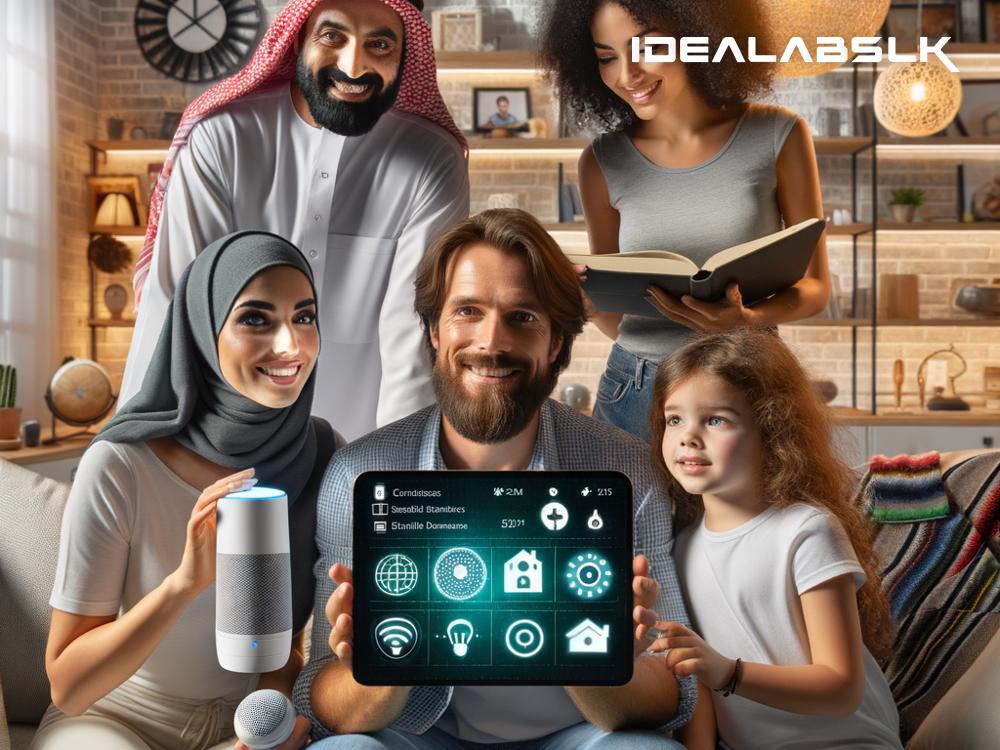How AI Makes Smart Homes Smarter with Cross-Device Integration
In the world of today, smart homes are not just a glimpse into the future—they're our present reality. A significant force behind this trend is artificial intelligence (AI), especially when it involves cross-device integration. But what does that mean, and how does AI truly enhance the smart home experience? Let's break it down into simpler terms.
Imagine your home as a beehive and the devices within it as bees. Each bee knows its role and performs it but imagine if all bees could communicate with each other, sharing information to make the hive more efficient. This is what AI does in smart homes; it's the language that allows devices to talk to each other, making the hive (your home) smarter.
Personalized Automation Everywhere
One of the coolest things about having AI in smart homes is the level of personalized automation it brings. Your smart thermostat doesn't just adjust the temperature anymore; it learns your schedule and preferences. It knows when you're about to get home and sets the temperature to your liking. All this without you touching a button. The AI learns and adapts, making decisions based on data from other devices, like your phone's location.
Enhanced Security with Smart Integration
Security is another area where AI-enhanced smart homes shine. Imagine having cameras that don't just record but can also recognize family members, pets, and even alert you if an unfamiliar face is spotted. With AI, your smart lock can communicate with your security cameras. If someone you trust is at the door, the system can automatically let them in. No more rushing home to let in the plumber or worrying about giving out spare keys.
Energy Efficiency and Cost Savings
Smart homes equipped with AI can significantly reduce energy consumption and save money. It's like having an extremely vigilant house manager who always turns off lights when a room is empty, adjusts the thermostat to save energy, and even suggests the best times to run your washing machine or dishwasher based on energy tariffs. These decisions are made by analyzing data from various devices and sensors, ensuring that you're using energy as efficiently as possible.
Seamless Entertainment
The entertainment setup in a smart home is another area where AI with cross-device integration creates magic. Your AI system can offer personalized movie recommendations on your smart TV based on your viewing history. Imagine walking into your home, and with a simple voice command, your AI assistant dim lights, draws the blinds, and starts playing your favorite show where you left off—all because it understands your preferences.
Healthier Living
Smart homes with AI can even help you live healthier. For example, air purifiers can adjust their settings based on the air quality sensors spread throughout your home. Smart fridges can monitor your food's expiration dates and even suggest recipes based on what's inside. Wearable fitness trackers can communicate with your home to create the perfect environment for a workout or relaxation after meeting your daily exercise goals.
Solving the Complex Puzzle
You might wonder how all these devices manage to work together so seamlessly. That's where cross-device integration comes into play. Each device communicates over a common network, sharing data and making decisions based on comprehensive information. It's not just one device making an isolated decision but a collective response from your home to suit your needs. This is possible because of AI, acting as the brain coordinating all these actions smoothly.
The Challenges Ahead
As exciting as this sounds, integrating AI in smart homes does come with its challenges. Privacy concerns are at the forefront, with devices collecting personal data continuously. There's also the issue of compatibility, as not all devices speak the same language, even in the smart world. However, with advancements in AI and a push towards standardization, these hurdles are gradually being overcome.
The Smart Home of Tomorrow, Today
The reality is that AI-enhanced smart homes are no longer just a fantasy. They are here, transforming our living spaces into ecosystems that learn, adapt, and respond to our needs. As AI technology and cross-device integration continue to evolve, the possibilities are endless. From personal convenience and entertainment to energy efficiency and security, AI is truly making our homes smarter and our lives easier. It's a fascinating time to be part of this transformation, watching our homes become more connected and intelligent, one device at a time.

